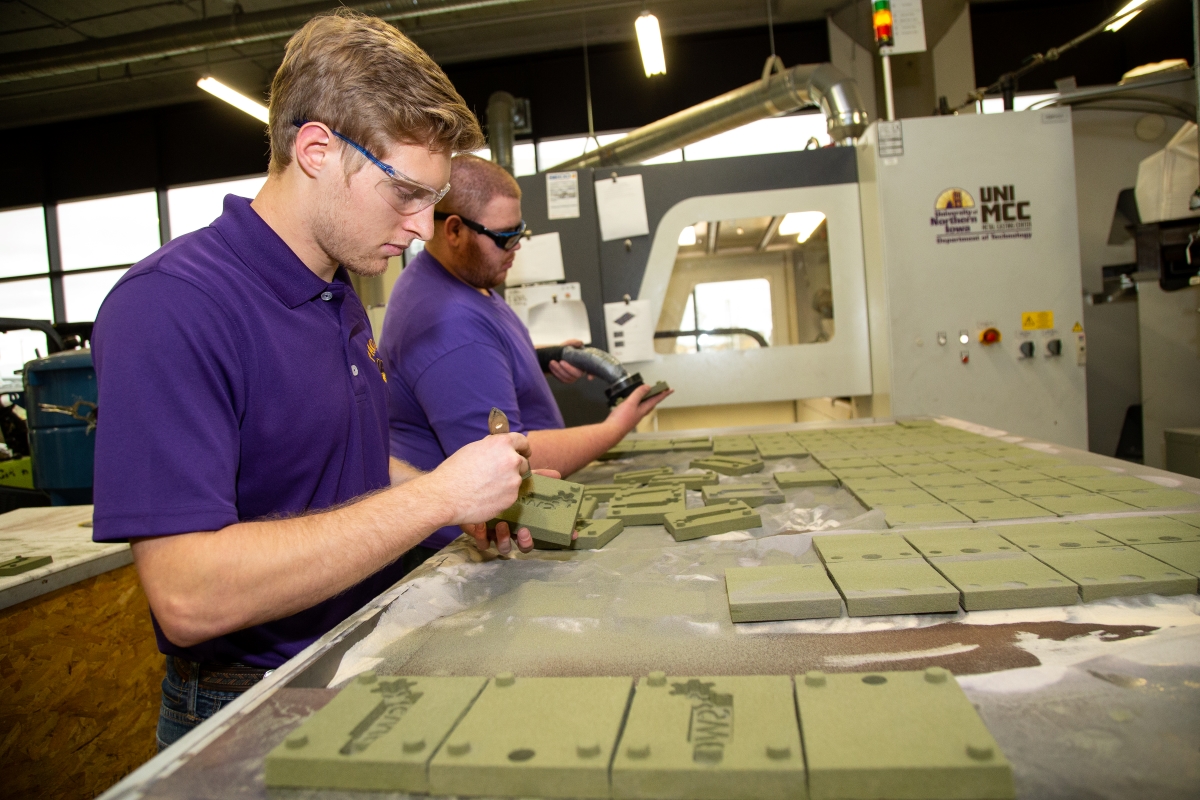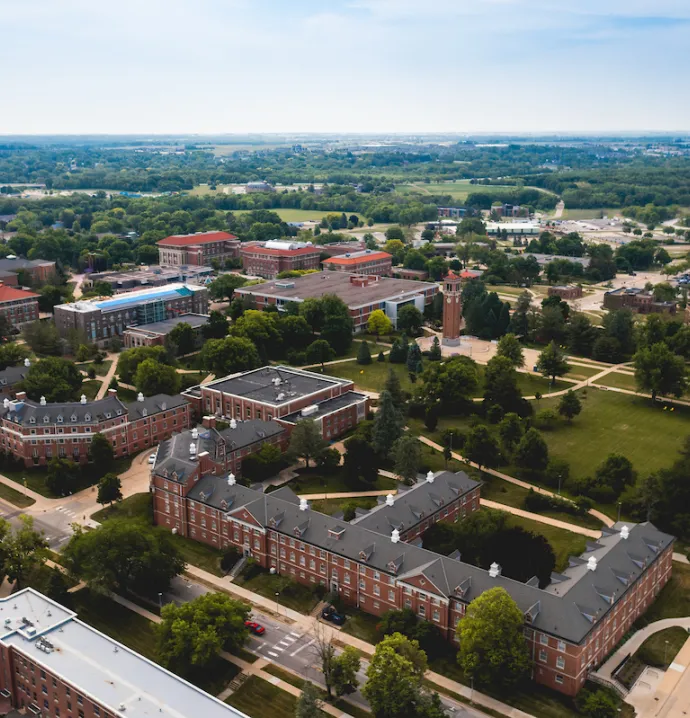University of Northern Iowa adds its first-ever engineering degree to support Iowa’s workforce needs
University of Northern Iowa adds its first-ever engineering degree to support Iowa’s workforce needs

CEDAR FALLS, Iowa – In an effort to meet growing demand, the University of Northern Iowa is launching its first-ever engineering degree. The degree will be one of two new science and engineering programs that build on the existing expertise and facilities UNI has in metal casting and manufacturing engineering technology in the Applied Engineering and Technical Management Department and in materials science in the Physics and Chemistry & Biochemistry departments. These two new programs will greatly benefit from the new resources provided by UNI’s new Applied Engineering Building set to open next year.
- The first-ever engineering degree offered by UNI, the Bachelor of Science in Materials Science & Engineering will emphasize the properties of metals - a core strength of the Applied Engineering & Technical Management Department - and will leverage UNI’s foundry science facilities and materials science expertise in the Physics and Chemistry & Biochemistry Departments.
- A second new program, the Bachelor of Science in Materials Science Engineering Technology, takes a more applied, industry-based and manufacturing approach, leveraging UNI’s existing facilities and strengths in metal casting, and additive and subtractive metal manufacturing applications.
Iowa companies like John Deere, Collins Aerospace, BAE Systems, Doerfer Engineering, and A.Y. McDonald have all indicated a need for graduates from both programs. These companies will also provide opportunities for internships and senior projects.
“These programs will provide students with extensive hands-on experience using advanced equipment, training them to find solutions to real-world problems and improve people’s lives,” said Lisa Riedle, PhD, PE, head of the Department of Applied Engineering and Technical Management. “Smaller class sizes at UNI provide undergraduate students frequent and consistent opportunities for interacting with the UNI faculty members teaching the classes, who hold PhD degrees in engineering or physics.”
The new programs will utilize advanced equipment for producing and testing materials in UNI’s Metal Casting Center and the Foundry 4.0 Center, which are administered by the Department of Applied Engineering and Technical Management. Students will also employ modern instrumentation for characterizing the physical and chemical properties of materials in the Physics and Chemistry & Biochemistry departments. Furthermore, students will have opportunities to participate in paid materials research projects funded by agencies such as NASA, the National Science Foundation, the U.S. Department of Energy, and the U.S. Department of Defense.
“These are cutting-edge facilities that position the programs to meet the workforce needs of the state of Iowa and industry across the nation,” said John Fritch, PhD, dean of the College of Humanities, Arts and Sciences.
These programs will welcome new students in the fall of 2024.




